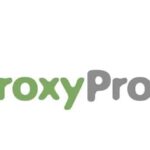In the digital world, where transactions occur after every second, guaranteeing financial security and trust is paramount. Therefore, KYC Verification is essential to ensure transparency, particularly in the insurance sector, where trust is crucial in maintaining a reliable relationship between the insurer and the insured.
KYC verification also facilitates the seamless exchange of information between both parties. The information collected during the KYC verification can create an evidentiary setting where consumers understand the insurer’s requirements, and the insurance companies understand the customer demands and peril profile. On top of everything, KYC verification is crucial in ensuring financial security. To comprehend more about KYC verification, read the critical information below.
Key features of the article
- Learn what online KYC verification is
- Insights of the critical components of the KYC procedure
- Ensuring financial security with the help of KYC in insurance
- The list of several cases of insurance fraud
- The importance of risk assessment in KYC check
- Know about leveraging technology in KYC authentication
- Briefly discussed the advantages of KYC verification
Online KYC Verification Explained
KYC is fundamentally a process the business utilizes to perform a sustainable verification of their clients or customers. The verification process includes collecting the data from the available resources, organizing the available data, and then verifying the data manually or with the help of several advanced technologies. Maintaining the proper record of the collected data is also crucial to avoid any adversity. The data primarily includes name, contact details, address, source income, occupation and business, and other relevant information that can help verify.
For Online KYC Verification, insurance companies and financial institutions use AI-based technologies to verify the details of their clients online. This process has been an integral part of AML protocols and is significantly essential in combating fraud, managing risks, and ensuring compliance with regulatory standards across various industries.
Critical Components of KYC Authentication
The KYC verification procedure is adequate for financial institutions such as banks, fintech, the insurance sector, and domestic, or international trade. Healthcare, the crypto world, and different security sectors also use KYC to identify and verify identities. It helps to recognize identity fraud and financial fraud, however, the most critical components of KYC are:
- Customer Identification Program (CIP)
- Customer Due Diligence
- Ongoing Monitoring
KYC in the Insurance Sector Ensures Financial Security
According to the FBI and CAIF, Insurance fraud has stolen at least $308.6 Billion yearly from American consumers. There are statistics that claim the total expenditure the US has lost in insurance fraud is more than $40 Billion per year, which is not health insurance. Furthermore, health Insurance fraud is evaluated as a total loss of $60 billion every year. Thus, KYC verification ensures financial security and builds the trust of the customers and insurance companies by providing them with optimal and robust solutions and preventing fraudulent activities beforehand.
Transparency in the insurance sector indicates a clear and convenient trade of information between both parties to legitimize their data.
The well-known Insurance frauds
There are several insurance frauds that happen because of the unavailability of resources and not opting for KYC regulations, the following are them:
- The two brothers from Philadelphia, named Iwad and Bahaa Dawara, ignited the fire in their warehouse and caused the arson of their business. They made the conspiracy and claimed insurance, although their fraudulent action burned society. Hence, they were sentenced to nine years in prison and ordered to pay $22 million in restitution.
- A British couple, infamous for life insurance fraud, saved £680,000 after her husband’s death. The wife helped him fake his death, and mourned with her two sons, then cashing in on insurance claims.
- In 2009, a man crashed his $1 million Bugatti Veyron into the lake and claimed that he had lost control, which led him to one of the worst car insurance of $2.2 million.
- A physician in Texas, who made unnecessary home visits and charged extra for unneeded services was sentenced to 35 years and fined $268 million for accomplishing a $375 million health insurance fraud.
Advantages of KYC Verifications
The benefits of KYC are not limited to AML(Anti Money Laundering) and CDD (Customer Due Diligence) but also include:
- Prevent Financial Fraud
- Minimize Risk
- Builds trust with Clients
- Improve Onboarding Process
- Ensure Compliance
Final words
KYC Verification is a vigorous process that ensures transparency in financial institutions, especially in the insurance sector. It involves verifying customer identities, assessing risk assessments, and maintaining updated records, which helps combat insurance fraud. As technology continues to develop, KYC also advances. It is an advanced robust tool for improving the credibility of the insurer and insured, which also contributes to a more confident and trustworthy financial environment.


